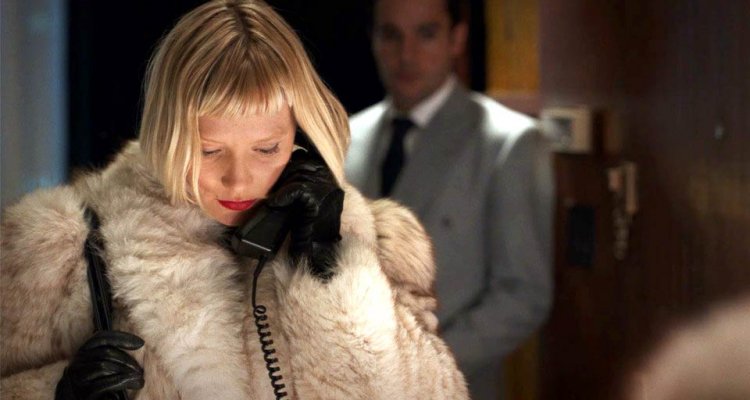Mia Wasikowska‘s latest film, “Piercing,” is a most unconventional love story between two highly disturbed individuals. “Piercing” is Nicolas Pesce‘s followup to his critically acclaimed directorial debut, “The Eyes of My Mother,” and a warmup for his hotly anticipated upcoming “Grudge” remake, which comes out in 2020. Although it isn’t a role we’re used to seeing Wasikowska in, she commands the character with ease, reminding audiences of her impressive range.
READ MORE: The 100 Most Anticipated Films Of 2019
An adaptation of Ryû Murakami‘s (“Audition“) eponymous novel, “Piercing” follows Reed (Christopher Abbott), a family man who embarks on a business trip with an elaborate plan to murder a prostitute, Jackie (Wasikowska). Anchored by exceptional performances from Wasikowska and Abbott, “Piercing” solidifies Pesce as a horror auteur to watch (read our review).
Ahead of its theatrical and digital release, I spoke with Wasikowska about approaching the unconventional of “Piercing,” working with Pesce and Abbott, working with Mia Hansen-Løve in the upcoming “Bergman Island,” details on “The Devil All the Time,” and more.
I went in having no idea what to expect to sort of maximize the viewing experience. It was intense, shocking, and funny all at once. How did Nicolas Pesce approach you with and sell you the concept of “Piercing?”
I read the script and I thought it was really brilliant, but I was also quite scared because of obvious reasons; it’s quite confronting material. And I wasn’t sure what to expect from who was making the film, but it came to me really last minute and I had to make a decision about it in 24 hours. Looking back, it was probably a really good way to have made a decision about this film. Because if I had too much time to think about it, there’s a lot of reasons why you could talk yourself out of it. But I really liked him [Pesce] and I liked the guys that were making it and it just seemed such a different character than the ones that I’ve played over the last few years, and I’d really wanted to do something modern and different. This seemed the obvious next thing to do.
Were you familiar with Ryû Murakami’s novel before reading the script?
No, I wasn’t. And I hadn’t seen Nic’s films, but everybody had talked about his films so highly.
Did you draw inspiration from anyone or anything in particular for your performance, or was it more based on intuition?
Yeah. The character was really well-written. I have played a lot of internal, suppressed, quiet characters, and it seemed really fun to play a character where everything was externalized; like her monologues about her scissor collections and her coffee machine. She’s just got this verbal diarrhea, which seemed really fun to me, to have a go at playing a slightly more manic person. Um, yeah. It just seemed really different, and I just went off what was in the script and then the few discussions that we had with Nic and Chris [Abbott] and I sort of bounced off each other.
Speaking of Chris, you two performed so well together. How did you rehearse master the transfer of power dynamics on display so seamlessly?
We didn’t really have much rehearsal time. When I got to New York, they were already filming his stuff, um, so we really just had a couple of chances to read through some of the scenes, and then the blocking rehearsals on the days. He’s such a fantastic actor. He’s just so brilliant, and we had a lot of fun. All the crazy possibilities that there were in those scenes between those characters – there’s a lot of discussions about whether they would actually ever hurt each other or whether they would just keep going through this weird cycle that they’re in.
You mentioned you hadn’t seen any of Nicolas’s prior films. What was his process like as a director on set?
He was great. He was really confident and sure of himself, and I loved the visual aesthetics that he gave to the story. I didn’t know any of that when I arrived, so to see the feel that he was giving it, visually, was really exciting. It was [this] very dystopian world, and you don’t quite know where you are or what time it is, and everybody was using their own accents. Anytime you saw out of a window it was an Asian country that they’d put on the screen. And so, it was supposed to feel quite displaced in the world, which helped with that sense of unease.

